It’s safe to say, lobbyists will play a greater role than ever in the 2016 presidential election. As the process evolves, following changes to fundraising laws, top lobbying firms are able to participate at higher levels of involvement and, therefore, advance their issues and causes more effectively. Inevitably, dollar signs are mounting up behind candidates on both sides, a partial contrast to the 2012 election when President Obama refused contributions from lobbyists in a bid to limit special interest influence (similar to his stance in the 2008 campaign).1 Hillary Clinton has made no such commitment in 2016, and is actively raising funds at a comparable pace with her early presumed chief Republican rival, Jeb Bush.2
What Do Super PACs Have to Do With It?
Understanding the role of lobbyists in the 2016 race requires a look at Super PACs, the larger political action committees set up to pool donations that are then redistributed to parties or candidates. They often represent a single issue on behalf of businesses and corporations, or trade and labor organizations.3 The “Super” designation indicates that they can raise unlimited amounts from groups or individuals. They can, in turn, spend unlimited amounts in support of any issue or candidate. What are the limits on these fundraising organizations? They are barred from donating to a specific campaign, but they can contribute to a candidate or issue directly.3
The result has been exponential growth in the influence of money on the election process. Let’s do the math: before the close of the 2012 campaigns, Super PACs exceeded spending by the top ten old-school PACs of 2008 by 10 times. Notably, 80% of all Super PAC dollars were donated by fewer than 4% of donors.3
Have You Been to K Street?
Following a parallel, though slightly different path, are influential lobbying firms, many of them housed on “K Street” in Washington, DC.
Lobbyists may become directly involved in campaigns as managers and advisors, and they lead some Super PACs. Unlike Super PACs, however, lobbying firms must disclose the source and amount of contributions they receive directly (with some exceptions). Smaller lobbyists play an important role as well, representing their clients and issues to government officials with whom they have built relationships over the long-term.
Keeping score is not easy when it comes to tracking political campaign contributions, their sources, recipients, or bundlers. Bundlers? These are typically lobbyists, CEOs of large corporations, or other influential people who can pool contributions from individuals and PACs.1 They tend to be close to the candidates for whom they raise funds, and are well-positioned to step into high-level administration appointments when their candidate is ultimately elected.
Bundlers are busy on behalf of Jeb Bush, with two leading business groups involved. The top bundlers for Bush are a president of the National Association of Wholesaler-Distributors and a Senior VP of legislative and political affairs for the Mortgage Bankers Association.3
The Bush campaign had raised a total $312,000 from eight of the largest investment banks, including Goldman Sachs (as of mid-July 2015). Clinton comes in at a total of $300,000 as of mid-July.3 It appears that both sides are doing well with Wall Street, though Bush has amassed the most so far. Meanwhile, Clinton leads in lobbying funds, estimated at $2.1 million raised from registered lobbyists.
We’re still in the early days of the election season as the 2016 campaign heats up, the crowded field of Republican candidates starts to sort itself out, and the Democrats ponder alternative candidates. Keep that score card handy and watch the progress of lobbyists and their candidates toward November 2016. For more information about Washington, DC lobbying services, call Lobbyit at 1-202-587-2736.
Sources:
- http://www.washingtonpost.com/politics/lobbyists-playing-key-role-in-2012-fundraising/2011/10/24/gIQAUg0GMM_story.html
- https://www.boundless.com/political-science/textbooks/boundless-political-science-textbook/congress-11/how-congressmen-decide-82/interest-groups-lobbyists-and-pacs-451-10965/
- http://www.bizjournals.com/bizjournals/washingtonbureau/2015/07/3-early-takeaways-about-businesses-role-in-the.html

